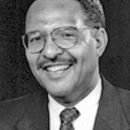The Massachusetts Supreme Judicial Court will go at least a little longer without having a justice from the western part of that state. Governor Charlie Baker’s latest pick, Ellie Cypher, lives in Bristol County.
Since Pittsfield native Francis Spina retired from the SJC last summer, there haven’t been any justices from Massachusetts’ four western counties.
Kevin Maltby, president of the Hampden County Bar Association, said geographic diversity at the state’s highest court is important.
“There can be different cases hailing from different parts of the commonwealth and having regional diversity allows the court to a representative of the entire commonwealth, and to provide certain insight and aspects into each case,” Maltby said.
Governor Baker still has one more retiring justice to replace this year, the fifth of his term. Justice Geraldine Hines is scheduled to retire in October.

